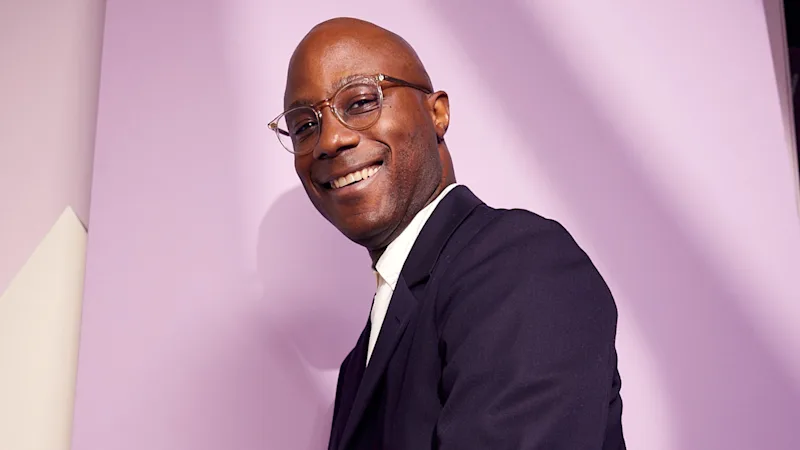Alice Walker's Pulitzer Prize-winning novel, The Color Purple, was first adapted by Steven Spielberg in 1985. That film earned 11 nominations in total at the 58th Oscars, including Best Picture, Best Adapted Screenplay, and acting nominations for stars Whoopi Goldberg, Margaret Avery, and Oprah Winfrey.
The book and film later inspired a 2005 Broadway musical, the original run of which earned 11 Tony Award nominations, while the 2015 revival won Best Revival of a Musical and Best Actress in a Musical.
Now, The Color Purple is returning to the big screen as a "bold new take on the beloved classic," building on everything that came before it: Walker's literary classic, Spielberg's cinematic masterpiece, and the hit Broadway productions. As such, Winfrey and Spielberg, as well as Quincy Jones (who was responsible for the music in the original film and received Oscar nominations for Best Original Score and Best Original Song for the song "Miss Celie's Blues (Sister)") and Scott Sanders (who put the show on Broadway), are all producers on the movie musical.
"I can tell you for sure this version ain't your mama's Color Purple," Winfrey has said. "But I bet you, your mama, and the whole family are gonna love it. It’s full of magical realism and visual surprises. It is beautiful and joyful. It's hopeful and proud. And it carries iconic depth and meaning."
What is 'The Color Purple' about?
Like the 1982 novel and the 1985 film, this iteration of The Color Purple is a coming-of-age tale that tells the story of a Black woman, Celie Harris, and her struggles living in the South during the early 1900s. The 2023 movie musical sets her tribulations and triumphs to song, focusing on "the extraordinary sisterhood of three women who share one unbreakable bond."
Is there a trailer?
Yes, and you can watch it now:
When does it come out?
The Color Purple will open in theaters in North America on Dec. 25, before releasing internationally beginning Jan. 18, 2024.

Who is in the movie?
The Color Purple's ensemble cast is led by an auspicious trio of leading ladies, including Fantasia Barrino in her feature debut. The Grammy-winning singer stars as the protagonist, Celie, reprising the role after a run in the original Broadway production. The role of Celie was played by Whoopi Goldberg in the 1985 film, for which the actress was nominated for Best Actress in a Leading Role.
Winfrey says of casting Fantasia, "Her rawness and vulnerability, along with her singing talent, means that Fantasia is going to knock it out of the park. Celie has to show such a range of emotion, coming from what feels like no strength to really being empowered."
The cast also includes:
Taraji P. Henson as Shug Avery: The Oscar nominee (Best Actress in a Supporting Role for 2008's The Curious Case of Benjamin Button) plays sultry blues singer Shug, who is a role model and, later, a lover for Celie. In the 1985 film, Shug was played by Margaret Avery, who received a nomination for Best Actress in a Supporting Role.
Danielle Brooks as Sofia: The actress previously played the part of Sofia — Celie's strong-minded friend and Harpo's first wife — in the 2015 Broadway revival. It is, of course, the role that Winfrey played in the original film, for which she received a nomination for Best Actress in a Supporting Role.

Colman Domingo as Albert "Mister" Johnson: The Emmy-winning actor (who has also starred in Oscar-nominated films like Selma, Ma Rainey's Black Bottom, and If Beale Street Could Talk) assumes the role of Celie's abusive husband. Winfrey says, "He always reminded me of the stature and presence of the original Mister in The Color Purple, Danny Glover. I thought, Wow, Colman could be Danny's son."
Halle Bailey as Nettie: Following her star-making turn in Disney's live-action The Little Mermaid, Bailey appears as Celie's buoyant younger sister, opposite newcomer Phylicia Pearl Mpasi as a young Celie. (Grammy-winning singer Ciara, meanwhile, plays adult Nettie.) Akosua Busia played Nettie in Spielberg's film.
The film's cast also includes Corey Hawkins (BlacKkKlansman) as Harpo, and Oscar winner and five-time Grammy-winning singer H.E.R. as Squeak, as well as Oscar winner Louis Gossett Jr., Oscar nominee Aunjanue Ellis-Taylor, David Alan Grier, Elizabeth Marvel, and Oscar winner Jon Batiste.

Who's behind the scenes?
Blitz Bazawule is at the helm. The Ghana-born, New York-based director made his feature directorial debut with 2018's The Burial of Kojo, but is perhaps best known for his work on Beyoncé's Black Is King. "We were all blown away by Blitz and his vision," Spielberg told The New York Times. "It's a reimagining and so different than the movie that I had made. It really does stand apart."
"What we're really excited about with this version of The Color Purple is our ability to give Celie an imagination," Bazawule says for his part. "We know that that story has trauma; what we know about people who deal with trauma is: The imagination is fertile, and that's how people overcome. It's also a musical, so we have the ability of music to explore where she is. Visually, it's unmatched."
To bring that vision to life, the filmmaker tapped two-time Oscar-nominated cinematographer Dan Laustsen (The Shape of Water and Nightmare Alley), Oscar-winning production designer Paul D. Austerberry (The Shape of Water), costume designer Francine Jamison-Tanchuck, and composer Kris Bowers (an Oscar nominee for the documentary short, A Concerto Is a Conversation).
First-time feature writer Marcus Gardley adapted the screenplay based on Alice Walker's novel and the musical's book by Marsha Norman, with music and lyrics by Brenda Russell, Allee Willis and Stephen Bray. Veteran choreographer Fatima Robinson, who has worked on Dreamgirls, Coming 2 America and The Oscars, crafted the film's choreography.

RELATED CONTENT:
Everything to Know About 'Dune: Part Two'







